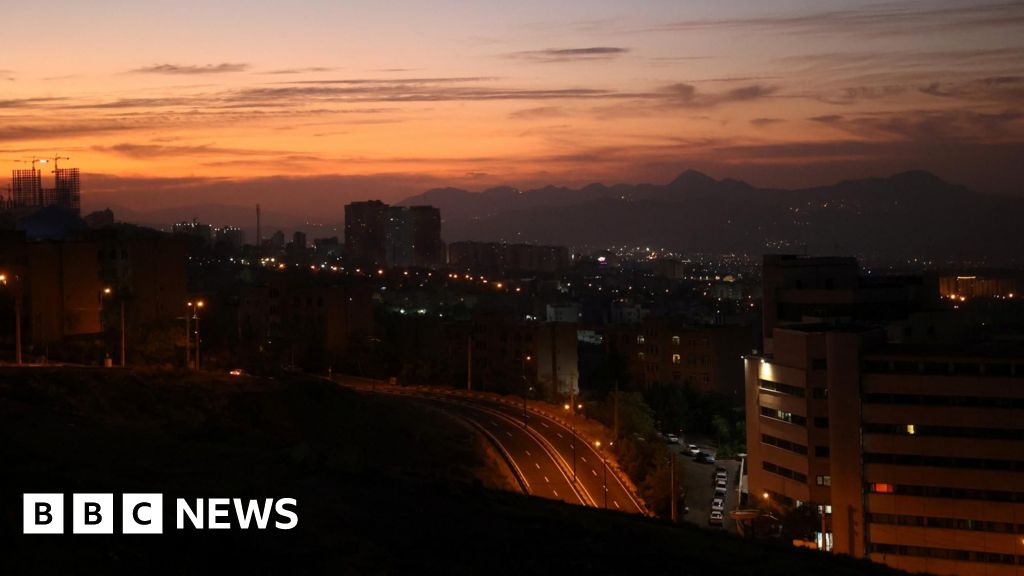Iran’s army reported that four Iranian soldiers were killed in Israeli strikes on Iran as a result of Israel’s retaliation against Iran’s missile attack earlier this month.
Early Saturday morning, the Israel Defense Forces (IDF), said that they had targeted missile factories as well as other sites near Tehran and west Iran.
The Iranian Foreign Ministry stated that it had a responsibility to defend its own interests, but also added that Iran “recognizes its responsibilities towards peace and security in the region,” a statement seen as relatively accommodative.
For weeks, it was widely expected that Israel would retaliate against Iran for the barrage of nearly 200 ballistic missiles launched at Israel by Iran on 1 October.
Tehran claimed the attack was a retaliation to the July killing of Hamas leader Ismail Haniyeh, who was killed on Iranian soil. Israel and its allies shot down many missiles, but only a few struck central and southern Israel.
Iranian authorities claimed that sites in Tehran, Khuzestan, and Ilam provinces had been attacked. The military claimed the attacks were successfully countered despite “limited damage” at some locations.
After the Israeli strikes, Iranian media showed footage of traffic flowing normally in a number of cities. School and sports activities also continued as planned.
The Israeli military announced the operation on Saturday shortly after reports of explosions in Iran. IDF spokesperson Rear Adm. Daniel Hagari stated that the military has demonstrated its readiness “to defend Israel”.
He warned that if Iran began a new round escalation Israel would “be obliged to respond”.
Both the US and Britain have urged Iran to refrain from retaliating following the latest attacks, while President Joe Biden’s administration has called for an end to violence.
Senior US administration officials claimed that Washington was not involved in the strikes and that it had been informed about them beforehand.
An official confirmed that the attacks did not target Iranian oil infrastructure and nuclear facilities, which the Biden administration had asked Israel to avoid.
The official said that the US had encouraged Israel to conduct a response which was “targeted, proportionate and low risk of harming civilians” for weeks and suggested that “exactly what transpired on Saturday evening”.
The office of Prime Minister Benjamin Netanyahu issued a press release saying that Israel chose its targets in accordance with “its national interests and not according to American directives”.
Sir Keir starmer, UK Prime Minister, said that Israel has the right to defend itself from “Iranian aggression”. He also echoed the calls for Iran not to retaliate and said the UK would “de-escalate” the situation in the region.
Russia and other countries, including US allies Jordan, Saudi Arabia and Kuwait, accused Israel of escalating conflict.
Qatar expressed “deep concerns about the serious repercussions which may result from this escalated situation”, while Jordan described the incident as a dangerous escalation.
Maria Zakharova, spokeswoman for the Russian Foreign Ministry, said that “we need to stop provocation of Iran to retaliate and get out of spiral of uncontrollable escalate”.
On Saturday, the exact targets and the extent of Israeli strikes were still unknown.
The Iranian aviation authority temporarily suspended flights, but announced they would resume at 09:00 local (06:30 BST).
Hooman, a factory worker aged 42, was in Tehran at the time of the explosions, he told AFP.
The agency reported that he said, “It was a terrible and horrifying sound.” “Now that war is raging in the Middle East we are afraid we will be drawn into it.”
Syrian state media reported that Israeli air strikes also targeted sites located in central and southern Syria.
According to the IDF, Hezbollah launched 80 projectiles into Israel Saturday afternoon following the Israeli strikes.
Later, AFP reported that the Iran-backed group had fired a series rockets at five residential neighborhoods in northern Israel, which included the outskirts Krayot, near Haifa.
Read More @ www.bbc.com












